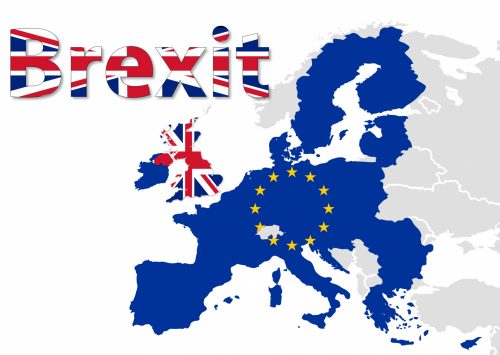Nearly seven months have passed since the United Kingdom’s June 23, 2016 vote to exit the European Union – a referendum commonly referred to as Brexit. The referendum has had wide-ranging economic consequences within the United Kingdom and throughout the global economy. Prior to the results of the June 23 referendum, the inter-bank exchange rate had been one British Pound (GBP) per 1.4883 US Dollars (USD); one day later, the pound sterling fell to 1 GBP per 1.3694 USD. In early 2017, the British pound has fallen to its lowest rate since 1985 as British Prime Minister Theresa May prepares to outline her plan for what’s being called a “hard Brexit,” a clean separation from the European Union. With the devaluation of the Pound Sterling and the relative strengthening of the US Dollar, it appears that Great Britain may hold buying opportunities for US-based real estate investors. Of course, such investment presents significant risk amidst the uncertainty of a post-Brexit world.
Pound Sterling and the relative strengthening of the US Dollar, it appears that Great Britain may hold buying opportunities for US-based real estate investors. Of course, such investment presents significant risk amidst the uncertainty of a post-Brexit world.
Post-Brexit Economic Risks to Great Britain
The primary risk that Brexit poses to investors is the impact that the referendum will have on economic activity within the UK. With an immediate 15.2% fall in the value of the British Pound, UK consumers were quickly left to face the increased cost of imported goods. British consumers have proven to be resilient, as retail sales have increased on a year-over-year basis each month since the July referendum, and inflation has remained low at 0.6%.
Great Britain’s exporting industries will face substantial challenges as the British Parliament determines the country’s approach to international trade, both within Europe and globally. As a member of the European Union, Great Britain’s businesses enjoyed “passporting” rights – the right to conduct business throughout the European market. The Financial Conduct Authority reported that 5,476 UK-based businesses hold at least one passport to conduct business in another EU or European Economic Area member state. The loss of passporting rights could be devastating to UK-based businesses, with FTSE 100 businesses reporting approximately 77% of revenue from outside of the UK. The FTSE 100 index is up 9.4% since June 23 (15.9% since the June 27 post-Brexit low), but is down 7.2% in USD equivalent terms.
The financial services sector, as the UK’s largest exporting industry, faces tremendous uncertainty as we move toward a post-Brexit Europe. £18.5bn of financial services were exported within the EU by the UK in 2014, and the industry is the UK’s largest tax paying sector. Potential restrictions on the ability of UK-based financial service firms to provide services throughout Europe would have a detrimental impact on the industry. Over 2 million Britons are employed in financial services and the industry therefore holds a large commercial real estate footprint. The strategies that financial services firms employ to adapt to their new operating environment will dictate the industry’s collective need for space in Great Britain, and more specifically in London’s duo of financial districts – The City and Canary Wharf. For example, financial institutions that elect to shift towards the Swiss Banking model – whereby a firm establishes subsidiaries in other European nations and services clients without passporting rights – will surely require less space in London, as management and operations would be distributed elsewhere.
A private Ernst & Young study, as reported by the Financial Times, has estimated that 83,000 jobs may be lost in the financial services sector in the seven years post-Brexit, with an additional 149,000 jobs potentially being lost in supporting sectors. With each office employee occupying an estimated average of 200 sq. ft. of space, the fallout of Brexit may directly result in over 16 million sq. ft. of office space (nearly 30 million sq. ft. when the domino effect on supporting sectors is factored in) being vacated. As London has an estimated 300 million sq. ft. of office space, this potential exodus translates to between 5% and 10% of office space in the city. In addition, firms allocating jobs outside of Great Britain will also result in an increased supply and a reduced demand for residential space as financial services professionals may be left to seek opportunities elsewhere.
Post-Brexit Opportunities within Great Britain
Though forecasts widely predict Bre xit to have a net-negative economic impact on the UK, there are some glimmers of growth opportunity in post-Brexit Great Britain, particularly in London. The deflated Pound Sterling will contribute to increasing tourism and foreign investment in low-risk sectors. London’s tourist offerings will continue to draw visitors from around the world, and many of these tourists will experience an increase in spending power with the weakened pound.
xit to have a net-negative economic impact on the UK, there are some glimmers of growth opportunity in post-Brexit Great Britain, particularly in London. The deflated Pound Sterling will contribute to increasing tourism and foreign investment in low-risk sectors. London’s tourist offerings will continue to draw visitors from around the world, and many of these tourists will experience an increase in spending power with the weakened pound.
As London becomes a more viable option for vacationers, we may see growth in the hospitality and lodging sector, as well as in supporting industries such as restaurants and West End theater productions. Pre-Brexit London was the most expensive city in the world in terms of the cost of an average night’s stay in USD. As tourism grows and the demand for lodging rises, there may be opportunities to convert the recently-vacated residential and office space in London to hospitality uses in order to maximize the performance of assets around the city. Conversions to boutique hotels could allow real estate investors and owners to solve the challenge of high office vacancy rates while seizing the opportunity to satisfy the existing and growing hotel demand in the city.
Great Britain may also see an uptick in the level of foreign investment in real estate from countries whose currencies are not directly tied to the Pound Sterling. Although foreign investors will undoubtedly be weary of the uncertainty surrounding Brexit and the approach that Theresa May will move forward with, there is a large number of trophy properties in London that will continue to hold value in absolute terms. There may be an opportunity to acquire some of these trophy properties at a low cost basis due to the relative value of the decreasing British Pound. Although the high level of uncertainty in Great Britain has led it to be cast as an unlikely destination for foreign capital, there are definite opportunities for US and global investors looking to make strategic, niche investments.
